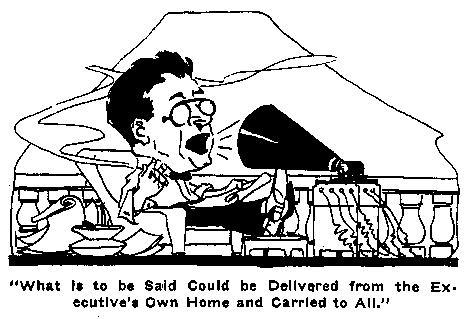In days of old when a man was told
To publish a decree,
He hopped a steed and put on speed,
As quickly as could be.
He rode about and shouted out,
The things he had to tell,
And if a hundred men were thus informed
He was doing very well.
But that crude way would never pay
In these more modern times,
When one may preach and his voice reach
A dozen different climes.
A little spark comes through the dark
Upon a little wire,
Its meaning read and the news is spread
That set the world afire.
|
|

